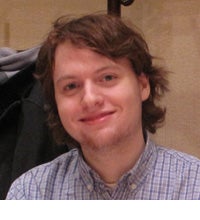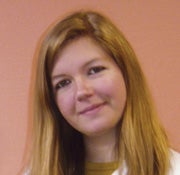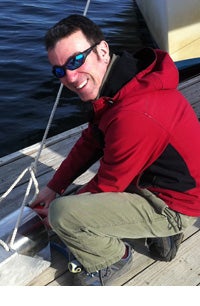Languages + Another Discipline = Great Jobs

The University found pairing a language and cultural studies expanded students’ knowledge and chances to work in global companies in the U.S. and around the world.
No matter how you say it, URI is BIG in languages. “I believe that we have one of the largest language programs in the country,” says Norbert Hedderich, chair of URI’s Department of Modern and Classical Language and Literatures.
About 3,600 students take a language class each semester or about 28 percent of the undergraduate population. Spanish with 1,247 students, French with 598 students, German with 359 students, and Italian with 492 were the most popular this fall. Chinese with 188 students is a new major that’s getting lots of traction.
For years, language courses languished at URI with a small number of majors. So what made the difference? The University found pairing a language and cultural studies with another academic program gave students the opportunity to study and/or intern in a different country with a different culture. That experience expanded students’ knowledge and chances to work in global companies in the U.S. and around the world.
“When potential employers see that an applicant has taken the risk to live, study, and work abroad for a whole year and has developed high level proficiency in a foreign language as well as valuable cross cultural skills, they want to hire them,” said Sigrid Berka, executive director of URI’s International Engineering Program, which combines an engineering degree with a bachelor‘s degree in either German, French, Spanish, or Chinese. IEP boasts a nearly 100 percent placement rate. “Globally operating employers view those skills acquired in one country as transferable to any country,” says Berka.
“As far as I know, we still are one of the largest French programs in the country, and I would even go so far as to say that we are one of the most dynamic,” says Professor Karen de Bruin, who directs URI’s French program. “Many traditional French programs, plagued with low numbers of majors, are fighting for survival. Because we highly encourage double/triple majoring, our unofficial major count last year was 172, our biggest yet.”
De Bruin notes that students can and do combine French with engineering, textiles, international business, marine affairs, forensic science, film media, and more.
“The other reason why we are so dynamic is because we aim to provide experiential learning opportunities in French for as many of our majors as possible. This fall, for example, President Dooley signed a bilateral exchange agreement with Mod’Spe, a Parisian fashion marketing and merchandising school,” says de Bruin, noting that other exchanges for other disciplines are in the works in France and Canada.
Computer Engineering and Chinese
Joseph Hackman ‘11 is thrilled with his new job as a software engineer at Intel Oregon, a global center of semiconductor research and manufacturing. “The job is fantastic. Everyone I work with is absolutely brilliant, and I get to know things about the industry outsiders won’t for years.”

“Due to the multinational nature of Intel, I certainly feel that my knowledge of Mandarin and the Chinese culture makes me a more valuable employee.””
Hackman studied computer engineering and Chinese in URI’s unique 5-year International Engineering Program. While at URI, he studied in China at Zhejiang University in Hangzhou and at Qingdao University in Qingdao. He completed an internship at HengTian, a software services company, where he communicated solely in Chinese. He delayed his graduation so that he would be the first student to complete the requirements for URI’s newly approved Chinese major.
Intel offered Hackman the job before he completed his studies. “Due to the multinational nature of Intel, I certainly feel that my knowledge of Mandarin and the Chinese culture makes me a more valuable employee, and it certainly didn’t hurt my chances landing the job.”
Hackman has a lifelong interest in Japan, and during his year in China, he traveled to Japan several times. Chinese, he says, breaks down barriers to learning Korean and Japanese: “I would certainly recommend language study to students. Language study and study abroad are huge parts of personal and professional development, and they are both areas where URI is in the top tier.”
Pharmacy and French
 Ashley Pincins ‘11 found a place to channel her energy and empathy for others when she enrolled in the College of Pharmacy’s six-year Pharm D. program. To give her brain a change from all the science courses, she took several French courses. She had enjoyed an intensive French program at her high school.
Ashley Pincins ‘11 found a place to channel her energy and empathy for others when she enrolled in the College of Pharmacy’s six-year Pharm D. program. To give her brain a change from all the science courses, she took several French courses. She had enjoyed an intensive French program at her high school.
With her French fluency, Pincins completed two of her required six pharmacy rotations in French hospitals. The rotations were coordinated by the School of Pharmacy, University of Rennes. “Practicing pharmacy in France gave me an invaluable perspective on the differences and similarities between professional practices in two different countries,” says the 24-year-old.
Because of her hectic schedule, Pincins was a few courses shy of earning her bachelor’s in French, but she says her knowledge of the language is a plus.
“In the face of globalization and a limited job market, learning a language makes a college graduate more marketable to prospective employers. Even the pharmacy market is much more competitive than when the class of 2011 entered as freshmen. I have had three separate employment offers since graduation, and I attribute that in part to my language skills.
“When a person invests the time to learn a language, that commitment suggests a set of skills and values that employers would be happy to have. My French-speaking ability was discussed at every job interview.”
Pincins is employed at a community health center in Maine that serves uninsured patients with limited resources.
Global Business Management and Spanish

“I feel strongly that this set me apart from other candidates.””
Alina Zolotnitskaya ‘09 spent two weeks in Costa Rica with her Needham High School Spanish class. “It not only sparked my love of Spanish, but also my passion for travel,” she says. “I got to see an amazing country and do things I never imagined like hiking through a rain forest. What really inspired me, however, was my ability to communicate with my host family who spoke no English.”
While attending URI, Zolotnitskaya participated in the Salamanca, Spain summer program and studied in Seville for a semester. “I fell in love with Spain,” she says, explaining that after graduation she taught English in Malaga, Spain for 10 months.
During job interviews after she returned, every interviewer wanted to know about her experiences abroad. “I feel strongly that this set me apart from other candidates,” says the alumna who was born in St. Petersburg, Russia, and speaks fluent Russian.
Zolotnitskaya is now an analyst for Jones Lang LaSalle in Chicago, where she develops communication processes and provides data integrity management and training to support real estate managers.
Although she’s not currently using Spanish on the job, she chose that global firm for its international opportunities and hopes to work abroad in the next few years.
Any advice for current students? “While going abroad can be a scary experience that takes you out of your comfort zone, the experiences you will have are invaluable.”
Fashion and Italian
Every fashionista would love to have Ashley Sayers’ job. The 2010 alumna is an assistant buyer of women’s shoes for Gucci America, Inc., New York City. Growing up in Northern New Jersey, Sayers always had an interest in the fashion industry. When deciding on a college, she applied to URI because its Department of Textiles, Fashion Merchandising, and Design had a great reputation.
Her fashion classes gave her the chance to explore the multiple career avenues the industry has to offer. The major requires students to take a language course. “I did not start studying or speaking Italian until my sophomore year,” she says. “I ended up taking it as a double major.”
Italy, of course, is one of the leading countries in fashion design and fashion is an important part of that country’s cultural life. Gucci is one of the leading fashion houses in that country.
To prepare for her future career, Sayers studied at the University of Richmond in London during the fall of her junior year and at the University of Richmond in Rome during the spring semester of her senior year. Before landing her current job, she was a buying intern at Gucci.
Today, her job description includes jetting to Italy where she easily feels right at home speaking fluent Italian with colleagues or striking up a conversation with a cab driver.
Oceans Away
Growing up in Framingham, Mass., Matthew “Matt” Zimmerman ‘01 thought about studying engineering in college, but he never thought about also majoring in German or French.

Many people in the world can speak three languages. “It’s only unique for an American, and this should not be the case in a global economy.””
Yet today the vice president of engineering and co-founder of FarSounder often communicates in those languages while traveling the world visiting customers, training dealers, or participating in trade shows.
“When I speak the local language, I’m able to get around better and make better connections,” says the graduate of URI’s International Engineering Program who spent five months studying in Orleans, France, and then moved to Germany to complete a six-month internship with SAP in Karlsruhe.
While a student, he also worked on sonar technology with Ocean Engineering Professor James Miller. Before Zimmerman graduated, he and Miller commercialized their work and co-founded FarSounder in Warwick, R.I. The result was 3D Forward Looking Sonar to improve of navigational safety for surface vessels by helping them avoid obstacles.
Today, the company designs, manufactures, and markets 3D sonar systems with a variety of applications in the commercial, recreational, defense, and homeland security markets worldwide.
“We’ve become the de facto standard in these technologies and continue to grow and create new products,” Zimmerman says with some understandable pride, noting the company hires a number of URI graduates and student interns.
He doesn’t find his linguistic skills extraordinary. In fact, he says, many people in the world can speak three languages. “It’s only unique for an American, and this should not be the case in a global economy.
 Home
Home Browse
Browse Close
Close Events
Events Maps
Maps Email
Email Brightspace
Brightspace eCampus
eCampus


